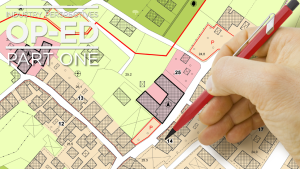Ever hear complaints graduates “just aren’t ready for the workforce”? What about laments “trades jobs just aren’t valued enough – everyone wants to go to university?”
There’s a critical, transformational education reform that could make a big difference in getting more students interested in the trades and prepared for the workforce by the time they graduate high school: ending the requirement for all Alberta-certified teachers to hold a Bachelor of Education (B.Ed.) degree.
While the B.Ed. requirement makes sense for most teachers, it makes zero sense for subject matter experts, those who hold official certifications, licenses or even doctorates in their field.
This antiquated strip of red tape keeps experts out of the classroom, limiting students’ exposure to the education they and our economy need.
Frankly, this is stifling Alberta’s future.
Chances are, very few crane operators, electricians, mechanics, welders and carpenters also happen to have spent four years getting a B.Ed.
Without that degree, current provincial rules mean those folks are not qualified to teach a shop class in Alberta, even with years of practical experience outside the classroom.
What is surely most aggravating for the vast majority of tradespeople is that they’ve been successfully training new employees for years.
In fact, Alberta’s whole apprenticeship system is based on journeypersons’ teaching. A B.Ed. wouldn’t add to a tradesperson’s ability to teach their trades to others.
The current policy is not merely a minor inconvenience, but a major barrier to Alberta’s future. Our province is experiencing a significant labour shortage, including in the trades and technology sectors. Earlier this spring, nearly 8,000 construction jobs in Calgary were vacant. Late last year, the labour vacancy rate in construction was nearly double (6.7 per cent) what it was in 2020 (3.5 per cent). The forecast looks no better. Experts predict more than 26,000 new journeypersons across several trades, plus 51,000 new apprentices, are needed within just the next two years.
The “Alberta is Calling” campaign to recruit tradespeople to the province is helping but is not enough on its own. Even more important is sparking interest among young Albertans, and forming and developing these students over the years, right here at home.
Currently, not enough high school students are exposed to the skills needed for Alberta’s labour force. Students aren’t given the opportunity to discover what trades education and jobs are really like – nor do they learn what entrepreneurial, good-paying jobs they are.
This status quo is simply untenable for the economy. Allowing subject matter experts to teach will help remedy this crisis.
Think-tank Cardus just released a report, Retooling Teacher Certification, which offers several feasible options for new pathways to credentialing for subject-matter-expert teachers. This is the kind of creativity and innovative policy that the economy needs.
Or, consider this. Which successful skilled tradesperson will pause a career, give up a good income, and spend thousands of dollars to go back to school for a B.Ed.?
For the trades teachers we need in classrooms today, a B.Ed. isn’t just impractical requirement. It’s a major roadblock to getting the trades teachers Alberta needs to produce the tradespeople of the future.
Alberta should be placing great value on the specialized training and practical, hands-on learning skilled tradespeople would bring to classrooms.
Shop classes don’t just teach students about engine repair or constructing a wooden frame for a wall; they’re also about creativity, design and engineering. What’s more, students are learning project management skills and how to turn their ideas into marketable realities. This has a ripple benefit for our economy and society.
Of course, defenders of the status quo will object that subject matter experts can teach in classrooms – as long as a B.Ed.-holding teacher remains in the classroom to supervise.
That’s at best a Band-Aid policy, given the existing teacher shortage in Alberta schools. Rather than tie up a second teacher to babysit the first, it would make more sense to allow experts to take a teaching quality-standards course at the same time as they teach.
This would increase the supply of qualified trades teachers for thousands more students. Naturally, they would only teach courses in their field of expertise and would go through the same background checks and general oversight as every other teacher.
Simply put, it is absurd that anyone with a B.Ed. is qualified to teach high school shop class, yet a carpenter with Red Seal certification and 20 years of experience isn’t. The solution to Alberta’s shortage of skilled tradespeople begins in the classroom. It’s time to let our experts in the trades into our schools. There’s no time to waste.
Catharine Kavanagh is the Alberta liaison officer at Cardus, a public policy think-tank. Send Industry Perspectives Op-Ed comments and column ideas to editor@journalofcommerce.com.











Recent Comments
comments for this post are closed